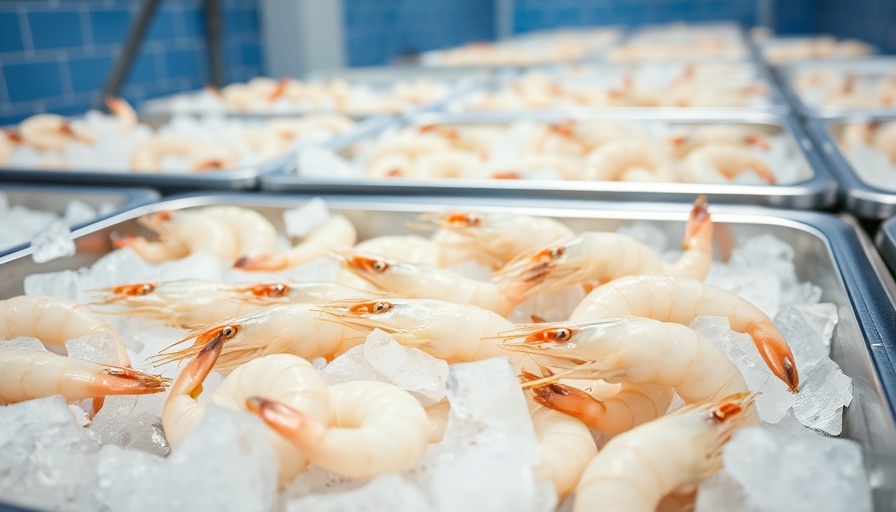
Galveston Shrimpers See Tariffs as Hope for Revival in Troubled Industry
The fishing industry has faced fierce turmoil over recent years, particularly in places like Galveston, Texas, where shrimping has historically been a cornerstone of the local economy. With over 90% of the shrimp consumed in the U.S. now coming from foreign imports, local shrimpers are struggling to compete. Many of these shrimpers believe that tariffs imposed on imported shrimp could be the help they need to reclaim their market and restore their livelihoods.
The Impact of Imported Shrimp on Local Economies
In the past, Texas shrimpers thrived, supplying fresh, high-quality shrimp to restaurants and seafood markets across the nation. However, the influx of cheaper imported shrimp since the turn of the millennium has pushed many hardworking shrimp businesses to the brink. As U.S. consumers increasingly opted for the lower prices of imported shrimp, local producers faced dwindling sales and a challenging operating environment. This raises a crucial question: can tariffs on imports revive the industry, or simply increase costs for consumers?
Understanding Tariffs: A Dual-Edged Sword
Tariffs are taxes imposed on imported goods intended to make domestic products more competitive by increasing the cost of foreign products. For the Galveston shrimpers, this could mean the difference between survival and closure. By levying tariffs on imported shrimp, the government could potentially level the playing field, giving local shrimpers a chance to lower their prices without sacrificing quality, thus enticing consumers to choose locally sourced shrimp over less expensive imports.
Local Perspectives: The Voices of Galveston Shrimpers
Local shrimpers, like those represented by the Galveston Shrimp Producers Association, have been vocal in their support for these tariffs. They believe that a protective measure could restore their status in the market. One shrimping business owner stated, "We just want a fair chance to compete. With tariffs, we can demonstrate to everyone how fresh and high-quality our shrimp is compared to those coming from overseas. It’s not just about the pricing—it’s about pride in our work and our community." These sentiments echo a broader plea for equitable treatment in an increasingly competitive market.
Global Perspectives: Tariffs in the Broader Context
Examining the implications of tariffs extends beyond the shrimping industry. According to economic analysts, the ramifications of imposing tariffs on imports can have cascading effects throughout various supply chains. While local industries might benefit from reduced competition, consumers could face higher prices. It is essential to balance local advantages with the potential burden on consumers and other sectors of the economy that depend on imported goods.
Future Trends: What Lies Ahead for Galveston Shrimpers?
The question remains: can tariffs truly stabilize the shrimping industry in Galveston, or will more be needed? Historical data suggests that steady market conditions can only follow sustained support from local businesses and consumers who are willing to prioritize fresh, locally sourced products. As we delve into future trends, some experts suggest that a combination of tariffs, community-led initiatives to promote awareness about local seafood, and greater collaboration among shrimpers could forge a path toward rejuvenation.
Concluding Thoughts: A Call for Community Support
As Galveston shrimpers await the final decision on tariffs, community support takes on greater significance. Local residents are encouraged to frequent seafood markets and restaurants that prioritize local shrimp. By choosing locally sourced shrimp, consumers can make a tangible difference at a critical time for Galveston’s shrimping industry. If consumers stand united in support of their local producers, it could be the catalyst needed to revive this sinking industry.
Empower your local shrimpers and feel good about your seafood choices! Reach out to local restaurants and markets and encourage them to feature Galveston shrimp. Together, let’s support those who work tirelessly to bring fresh seafood to our tables.
 Add Element
Add Element  Add Row
Add Row 



Write A Comment